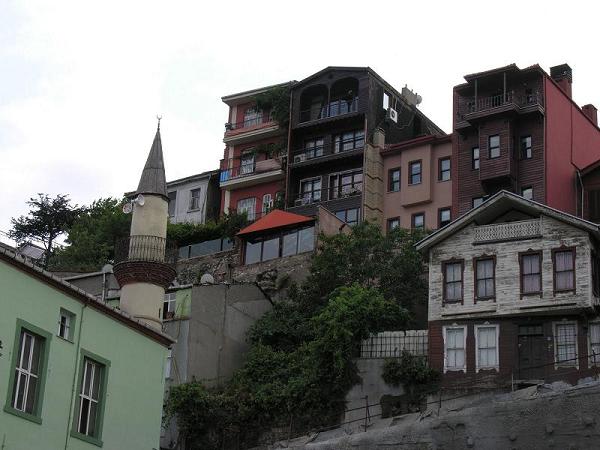- Albania
- Armenia
- Austria
- Azerbaijan
- Belarus
- Belgium
- Bosnia and Herzegovina
- Bulgaria
- Croatia
- Cyprus
- Czech Republic
- Denmark
- Estonia
- Finland
- France
- Georgia
- Germany
- Greece
- Hungary
- Iceland
- Ireland
- Italy
- Kazakhstan
- Kyrgyz Republic
- Latvia
- Liechtenstein
- Lithuania
- Luxembourg
- Malta
- Netherlands
- Norway
- Poland
- Portugal
- Romania
- Russian Federation
- Serbia
- Slovak Republic
- Slovenia
- Spain
- Sweden
- Switzerland
- Turkey
- Australia and New Zealand
- East Asia and the Pacific
- Latin America and the Caribbean
- Antigua and Barbuda
- Argentina
- Bahamas, The
- Barbados
- Bolivia
- Brazil
- Chile
- Colombia
- Costa Rica
- Dominica
- Dominican Republic
- Ecuador
- El Salvador
- Grenada
- Guatemala
- Guyana
- Haiti
- Honduras
- Jamaica
- Mexico
- Nicaragua
- Panama
- Paraguay
- Peru
- St. Kitts and Nevis
- St. Lucia
- Trinidad and Tobago
- Uruguay
- Venezuela
- Middle East and North Africa
- North America
- South Asia
- Sub-Saharan Africa
Home > Countries > Europe and Central AsiaTurkey
Country Profile

Turkey’s urban population has grown rapidly since the 1950s. At the end of 2009 an estimated 69 percent of the population lived in urban areas. Combined with considerable income inequality, a large informal economy and limited access to mortgage finance, this has led to an explosion of informal housing, or gecekondu, in Turkish towns and cities. It has been estimated that a quarter of Turkey’s urban population lives in such informal settlements, and that 60 percent of new housing is built without permits. Non-institutional finance remains the predominant form of housing finance in Turkey, creating serious affordability issues. Roughly 40 percent of the housing stock needs renewal, which is particularly urgent given the earthquake risk.
The most recent census from 2000 reported a nationwide owner occupation-rate of just over 68 percent. In Turkish culture, home ownership is important, so Turkish borrowers are generally highly motivated to repay their mortgages. With a non-performing loan ratio of just 1.4, mortgage credit is the safest type of consumer lending. After decades of high inflation and negative interest rates, real estate is strongly preferred to other investments. As a result, the growth of the real estate economy has outpaced the growth of the financial economy. Outstanding mortgage loans amounted to 4.9 percent of Turkey’s GDP in 2009.[1]
The Turkish mortgage law was passed by the Grand National Assembly on February 21, 2007. The law, which was prepared by Capital Markets Board of Turkey (CMB), aims to promote the primary mortgage market and establish a secondary mortgage market. The new mortgage law required amendment of other laws; foreclosure and bankruptcy laws, capital markets law, consumer protection law, financial leasing law and various tax laws.
The amendments of the Law of Foreclosure and Bankruptcy intend to accelerate the foreclosure period, which typically took two to three years in Turkey. The Capital Markets Law regulates secondary market institutions named “mortgage finance corporations” (MFCs), and allows MFCs and housing finance institutions to issue mortgage capital market instruments.
Soon after the Capital Markets Law passed, secondary legislation on mortgage-based covered bonds and mortgage asset-backed securities was completed. However, domestically produced mortgage-backed securities and mortgage bonds are practically non-existent. Instead, most mortgages are still funded by deposits. Turkish banks manage maturity mismatch between deposits and mortgages by hedging their portfolios with derivatives such as interest rate or cross-currency swaps.
Macro-economic improvements and the new legal framework for the mortgage sector have caused interest rates to come down. The representative monthly mortgage rate in October 2010 was 1.05 percent[2]. Loan to value ratios are limited statutorily to 75,but the average mortgage has an LTV of 60. The most common mortgage in Turkey has a maturity of seven to ten years.
http://www.toki.gov.tr/english/hda.asp#strategy – Links
[1] Hypostat 2009
[2]International Union for Housing Finance, “Turkey Factsheet.” October 2010.
Copyright © 2025. HOFINET. By using or accessing this website, you signify that you agree to the Terms of Use.
When using or citing any information displayed on this website or accompanying blog sites, you must provide a reference to HOFINET.
